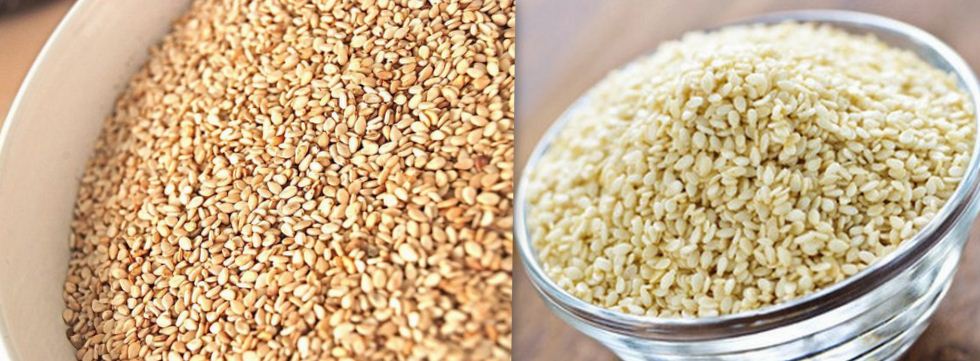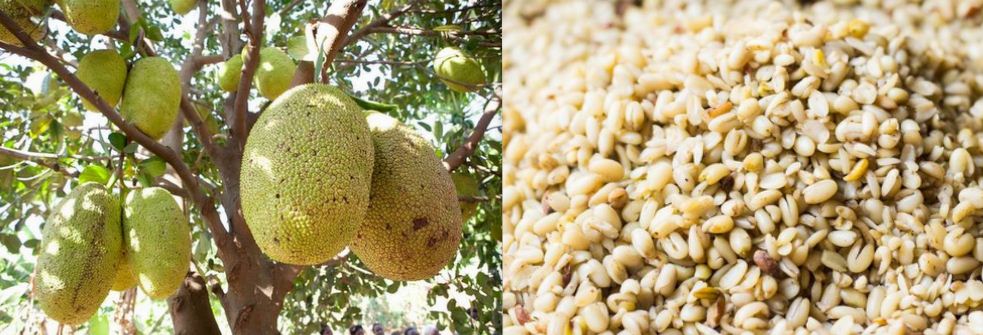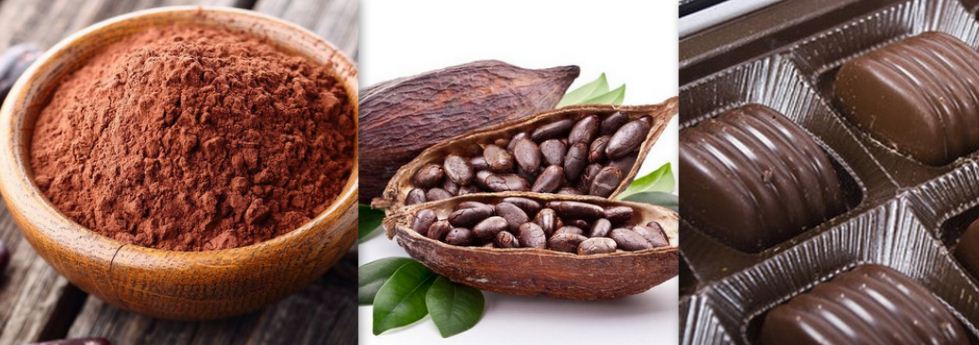About Sesame Seed or Beniseed and its Health Benefits

Sesame or beniseed is obtained from the sesame plant, and they are rich in several essential compounds and nutrients that add value to overall human health.
There are a good number of nutrient-dense condiments in beniseed that provides many benefits to the health and total well-being of man. These seeds also serve several other culinary purposes.
In sub-sections of this article, we shall be discussing the health benefits of beniseed (sesame) in detail following the outline below:
Reading through the points noted below lets you know some of the science-based and researched benefits of sesame to human health and lifestyle.
1. Helps To Moderate Cholesterol Level
Sesame (beniseed) contains phytonutrients as well as phytosterols which help lower the level of cholesterol in the body by reducing its rate of absorption and can as well help in weight loss as it burns body fats.
Phytosterols are plant sterols comparable to cholesterol but conversely function actively in the intestine to reduce and displace the level of cholesterol absorption. Research has shown that sesame has the highest content of this phytosterol, which is why it ranks the highest in lowering cholesterol.
Recent studies show that sesame is considered the best lowering cholesterol level in the blood among other grains, seeds, and legumes due to its richness in phytonutrients that acts quickly on this waxy fat that obstructs the flow of blood.
Beniseed (Sesame) contains 400 grams of phytosterols per every 200 grams of the seeds, sourced from Draxe.com.
2. Good For Heart Health
Because of the ability to maintain normal cholesterol levels, which improves blood pressure, sesame can help improve the heart's health conditions.
Lignans, mainly found in some seeds, whole grains, and legumes, are present in sesame seeds and help enhance lipids and normalize blood pressure.
These polyphenols are good for heart health as they prevent the heart from certain illnesses such as stroke, heart attacks, and other related.
Taking a moderate quantity of sesame seed helps to prevent another heart-related sickness called atherosclerotic because of the presence of an anti-inflammatory compound called sesamol in the sesame oil.
3. Prevent Diabetes
The minerals contained in sesame, such as magnesium, are beneficial to health because they can help prevent diabetes, and the increased intake of such foods rich in magnesium can effectively aid in insulin production.
Some of the fatty acids in the sesame seed help treat diabetes mellitus, especially type-2 diabetes.
When added to glibenclamide, these seeds serve as better medication for type-2 diabetes. Taking a moderate quantity of the sources daily can go a long way to produce a better effect on this condition.
4. Helps in Asthma Treatment
Magnesium can also help open the airways and is suitable for those with airway spams, such as an asthmatic one.
Eating magnesium-rich food such as sesame helps asthmatic persons because it contributes as much in relaxing and dilating the airways and reducing inflammation, thereby reducing the asthmatic condition.
This is to generally say that sesame is good for respiratory health because it prevents this respiratory disorder called asthma.
5. Prevent Anaemia & Other Blood Diseases
Sesame (Beniseed) contains iron which is good for health as it helps prevent anemia and other blood diseases.
The human body requires iron in good quantity to help produce hemoglobin, the protein found inside the red blood cells.
The function of this hemoglobin is to transfer oxygen from the lungs to tissues and then to the fetus; for this hemoglobin to produced, the body requires iron.
Since research has proved that sesame is rich in iron, it is advisable to take these seeds moderately daily to gain the iron the body requires to produce hemoglobin and prevent anemia.
6. Prevents/ Treats Constipation
Beniseed is rich in dietary fiber, which makes it suitable for the digestive system as it helps in proper digestion and eliminates the chances of bloating, cramping, and constipation.
The oily composition of sesame seeds also helps soften the intestines' content, which in turn helps prevent hard stool and provide constipation relief.
Conclusively, using sesame seeds as a daily snack is a natural remedy for reducing the occurrence of constipation. It provides immediate relief from constipation and prevents it as well.
7. Helps in Maintaining Strong Bones
The vitamins, calcium, and essential minerals in sesame make it suitable for the skin, teeth, bones, and general health. These seeds serve as a dietary recommendation for treating bone injuries and boosting bone mineral density, particularly on the bone.
Some of these minerals that contribute to bone health are calcium, specifically known to build and maintain the bone, as well as zinc and phosphorus.
Zinc and phosphorus are not neglected at this point; they play a vital role in preventing every disease that affects bone health and strengthens the bones.
The presence of copper helps prevent or reduce joint and bone-related problems.
8. Sesame Oil Nourishes The Skin
Zinc is contained in sesame in large quantities, so it generates collagen, which helps replenish the human body's damaged tissues.
Regular use of sesame oil helps keep the skin more elastic and prevents wrinkling appearances and skin coloration, such as dark spots.
Sesame oil also prevents the body from being harmed by ultraviolet rays from the sun, which can cause skin cancer.
This results from some anti-cancer compounds such as magnesium, phytosterols, and phytic acid in sesame.
9. Helps in Detoxifying The Liver
It is suitable for the liver because of the presence of methionine which aids in the effective detoxification of the liver and improves its function.
Sesame protects the liver from oxidative damage due to the presence of a strong anti-oxidant in it. This antioxidant, on the other hand, helps in promoting proper and healthy functioning of the liver.
10. Good For Eye Health
Sesame seeds and their oil help to improve eye health, especially black sesame seeds.
Experiments have shown that black sesame seed is vital in enhancing the liver's blood and nourishing the eye.
Omega-6 fatty acids in sesame contribute significantly to protecting the eyes from inevitable deterioration.
As the liver is connected to the eye, the function of sesame on the liver also extends to the eye because when the liver is affected, the eyes become very dry, and the vision blur.
11. Good For Pregnant Women
Sesame is suitable for pregnant women because it contains natural folic acid for preventing and reducing the chances of birth defects.
12. Good For Oral Health
Sesame oil is used for oil pulling, which helps remove toxins from the tongue and the whole system and specifically whitens the teeth.
That oil from sesame is found to be more gently detoxifying than other oils used for detoxification.
Oil pulling can be done using toasted sesame oil. 1 to 2 tablespoons full of sesame seed oil can lessen dental plaque.
It is done by putting the above-mentioned quantity of toasted sesame seed oil in the mouth for up to 15 minutes and then rinsing the mouth with water afterward. This helps to remove excess bacteria from the mouth and whiten the teeth.
13. Protect the Organs From Radiation Effects
Sesame seeds have been found very effective in protecting the body's organs from the effects of radiation due to sesamol in them; radiation can be irritating and harmful to human health.
14. Serves As Weight-loss Diet
Sesame can be used by people practicing weight loss because it contains phytochemicals that help burn excessive fats and body metabolism.
There is the presence of other active ingredients in beniseed (sesame seed) that helps in reducing hunger and avoiding overeating which will help anyone practicing weight loss.
15. Balances Sex Hormone
Research has proven that sesame helps produce sex hormones, mainly in post-menopausal women.
The presence of fats, protein, and other essential nutrients in sesame seeds helps produce lipids and blood sex hormones.
Investigations have also shown that taking 50 grams of sesame seed powder daily effectively improves the production of serum sex hormones.
Uses:
Sesame seeds have long been used for medicinal purposes because of their vast nutritional benefits. Whether used in the production of vegetable oil or other ways, it still contains those fantastic nutrients that are beneficial to health. Culinarily, sesame adds taste to some recipes due to its nutty and mild flavor.
Apart from its use in producing edible vegetable oil, it can also serve as a substitute for egusi and in preparing Esa soup in Nigeria; However, both egusi and sesame seeds look alike in every aspect. Their sizes are likely what differentiates them mainly, and beniseed is said to have more oil than egusi.
This is mainly grown in tropical areas of Africa such as Nigeria. Sesame is also called beniseed and widely known for its use in producing vegetable oil, which is in high demand because of its nutritional and health benefits.
Sesame seeds can be eaten raw. Whether eaten in raw form, cooked, or used as ingredients provide many health benefits, as explained above. Eating these seeds raw can be bitter but still healthy.
Nutrition values of Sesame seeds
100g per Serving
Calories 565
Total Fat 48g 74 %
Saturated Fat 6.7g 34 %
Sodium 11mg 0 %
Total Carbohydrate 26g9 %
Dietary Fibre 14g 56 %
Protein 17g 34 %
Vitamin A 0 %
Calcium 99 %
Iron 82 %
Vitamin C 0 %
Following the nutritional values obtained from grams of sesame per serving, one can know the quantity that can be okay for a day.
Sesame can be taken alone or combined with other nutritious seeds or nuts for the same health benefits.
Taking 50 grams of sesame seeds daily won't be bad as a good source of healthy fat in the diet.
Sesame seeds though beneficial to human health can have a side effect when taken in excess, just as other healthy sources. An allergic reaction such as anaphylaxis applies to sesame seeds oil when abused.
Black sesame seeds were mentioned in a paragraph of this write, making people wonder if there are other types of sesame seeds. Their other sesame seeds are available such as golden sesame and white sesame.
No matter the type or color of the sesame seeds, their nutritional benefits, and values remain the same; the slight difference is just in their flavor and color.
People may ask what quantity of these seeds and nuts should be taken daily. Some public health organizations, such as the American Heart Association, recommend eating nuts as part of a healthy diet.
Summary:
Sesame contains beneficial nutrients and many minerals and vitamins, including selenium, calcium, phosphorus, zinc, copper, dietary fiber, protein, molybdenum, folate, magnesium, iron, manganese, vitamins B1 and B6.
These nutrients have several benefits that they add to human health by consuming sesame seeds.
Sesame seeds help moderate cholesterol levels in the body, are suitable for heart health, and prevent diabetes. It also helps in asthma treatment and prevents anemia and other blood diseases.
Reduce constipation, helps maintain strong bones, nourishes the skin, and good for eye health, helps detoxify the liver, is suitable for pregnant women, is ideal for oral health, protects the organs from radiation effects, serves as a weight-loss diet, and balances sex hormone.




